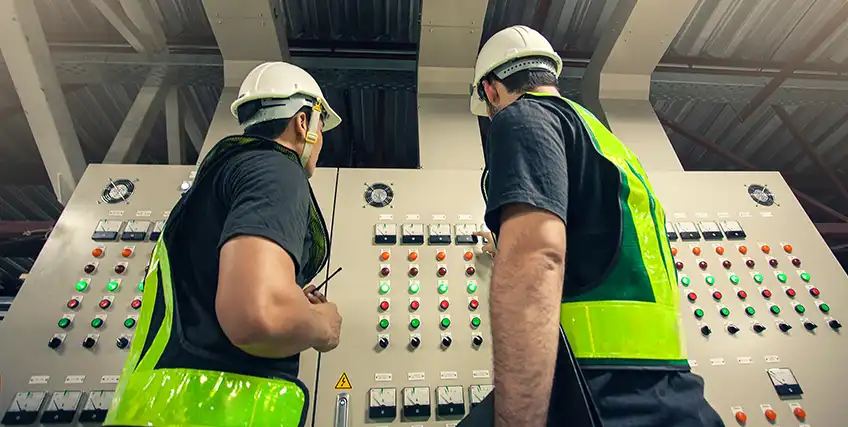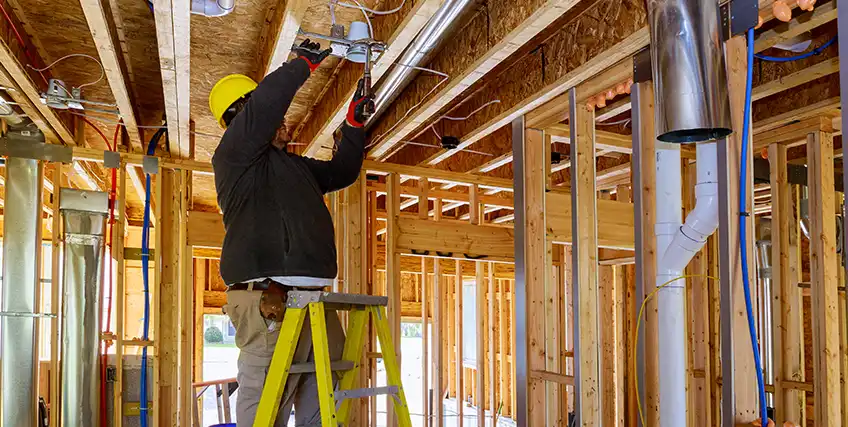Powering Up Your Business: Smart Ways to Use an Electrician Loan for Growth
April 02, 2025 | Last Updated on: April 07, 2025

Whether you’re starting up your electrical business from the beginning or need some extra cash for your business, there might be a time when you need a small business loan to cover your costs.
Electricians can use business loans in a few different ways, like paying for necessary equipment to do their jobs or training employees. Electrical business financing can come in handy when you need it most. Here are some of the best ways business owners can get financing solutions.
1. Startup funding
You might need a small business loan if you’re trying to get your electrical business off the ground. Electrical contractors may need to cover some upfront costs, like getting licensed and insured to prove you’re following high safety standards. In case there’s an accident, you’ll have all the necessary insurance coverage on your side.
Startup funds can cost you a few hundred dollars for an electrical contractor license, depending on where you live . To keep an active license, you may need to renew it every year.
Depending on your insurance company and business needs, you could use electrical business financing to cover recurring insurance costs. Like licenses, these costs can vary by where you live.
2. Working capital
Sometimes, work comes well before the hefty payday. But bills are due at the same time every month. Say you’re in a bind and need to cover bills between receiving payments. In that case, you can use electrical business loans to cover working capital, like paying your employees or maintaining cash flow.
Electrical business financing is a great way to cover your day-to-day operations, like rental space, supplies, and employee training. If you need a small business loan or a business line of credit, use those funds to help cover business needs even when you haven’t gotten paid yet. Using business capital for small business costs helps you stay current on bills and payroll so you can still keep your company going.
3. Equipment financing
You might not have the cash on hand to make large equipment purchases for your electrical company. Without the proper equipment, you might not be able to do your job to the best of your ability.
Whether you’re buying new equipment for your company or upgrading old machines and supplies, equipment financing might come in handy when you need it most. Use electrical business financing to cover those major equipment needs when something breaks down or you’re building your company from the ground up.
4. Business expansion
Having a successful small business sometimes means experiencing growing pains. If your electrical business is growing and you aren’t sure how to manage your workload, it might be time to expand your service area. You may likely need business financing to do this.
Electricians tend to stay in a dedicated service area, so expanding your business could be a big step. You may need to hire extra employees and pay for marketing services to promote your expansion. Business expansion could also mean acquiring another electrical contracting business covering the service area you want to grow in.
Even great businesses may not have enough extra cash for expansion. You can use electrical business financing to extend your reach beyond where you’ve been for a long time.
5. Refinance existing debt
If you need a business loan and you’re currently paying it back, you may not have an ideal interest rate and terms. If interest rates are lower now or you want to change your loan repayment terms, you could refinance your current business loan.
The refinancing application process is like how you initially financed your loan. Financing options vary based on your needs, the type of loan you get, lenders, and how much you need to borrow. Once you complete an application, lenders for small business loans check your credit score and use your creditworthiness to calculate your new interest rate and repayment terms.
Final Thoughts
The type of loan you get depends on what you need your funds for. Sometimes, you may want a short-term loan rather than financing that takes many years to repay. When you’re exploring business financing, compare lenders based on loan terms, competitive rates, fees, and how quickly you’ll receive your funds. Make sure you can afford the monthly payments as you look through different financing options.
Not all lenders have the same eligibility requirements for business financing. For small business loans, confirm you’re eligible before applying.
FAQs about electrical business financing
1. How much money do you need to start an electrician business?
Starting capital for an electrical company might be more expensive than other startups. You’ll need to have a working vehicle that can carry around your tools and equipment, plus have all the necessary tools and supplies to do your job. You’ll need to get licensed and insured, too. It could cost you as little as $5,000 to upwards of $25,000 or more to start your electrical business.
2. How do I start a small electrical business?
If you’re ready to start your own electrical business, make sure you get all the licenses and training requirements to do your job. Create your business plan and register your business at the local and state levels wherever applicable. You can purchase all the necessary equipment and tools if you have the funds to start. If not, you may need electrical business financing to cover some early business needs.
3. How profitable is an electrical business?
Turning a profit means earning more than you’re spending. Electricians should try to earn between 10% and 20% in net profits. On average, electricians usually hit the 10% profit margin mark.
4. How do I market my electrical business?
Make sure you have a clean, easily accessible website that anyone can visit on a computer or mobile device before creating targeted Google Ads. Build out your Facebook page and Instagram profile so you can create social media ads. Consider a customer referral program to reward your clientele when they share your services.




